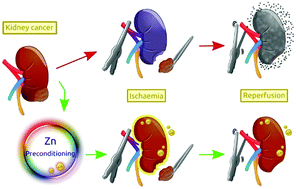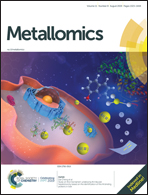Why is it worth testing the ability of zinc to protect against ischaemia reperfusion injury for human application
Abstract
Ischaemia (interruption in the blood/oxygen supply) and subsequent damage induced by reperfusion (restoration of blood/oxygen supply) ultimately leads to cell death, tissue injury and permanent organ dysfunction. The impact of ischaemia reperfusion injury (IRI) is not limited to heart attack and stroke but can be extended to patients undergoing surgeries such as partial nephrectomy for renal cancer, liver resection for colorectal cancer liver metastasis, cardiopulmonary bypass, and organ transplantation. Unfortunately, there are no drugs that can protect organs against the inevitable peril of IRI. Recent data show that a protocol incorporating specific Zn formulation, dosage, number of dosages, time of injection, and mode of Zn delivery (intravenous) and testing of efficacy in a large preclinical sheep model of IRI strongly supports human trials of Zn preconditioning. No doubt, scepticism still exists among funding bodies and research fraternity on whether Zn, a naturally occurring metal, will work where everything else has failed. Therefore, in this article, we review the conflicting evidence on the promoter and protector role of Zn in the case of IRI and highlight factors that may help explain the contradictory evidence. Finally, we review the literature related to the knowledge of Zn's mechanism of action on ROS generation, apoptosis, HIF activation, inflammation, and signal transduction pathways, which highlight Zn's likelihood of success compared to various other interventions targeting IRI.

- This article is part of the themed collection: Recent Review Articles


 Please wait while we load your content...
Please wait while we load your content...